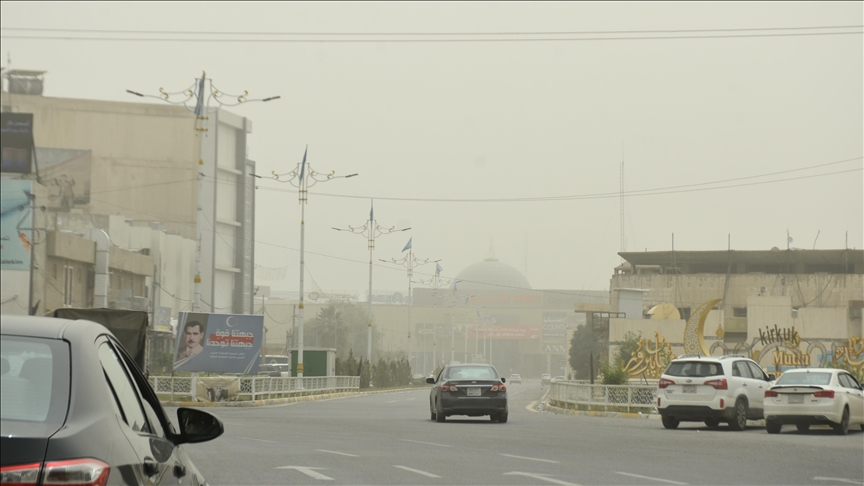WMO warns of 'vicious cycle' linking air pollution, climate change
'Climate impacts and air pollution respect no national borders – as exemplified by intense heat and drought which fuels wildfires, worsening air quality for millions of people,' says deputy secretary-general

ISTANBUL
Air pollution and climate change are locked in a “vicious cycle” that threatens global health, economies and ecosystems, the World Meteorological Organization (WMO) warned on Friday.
The warning came in the WMO’s latest Air Quality and Climate Bulletin, released ahead of the International Day of Clean Air for Blue Skies on Sept. 7.
“Climate change and air quality cannot be addressed in isolation. They go hand-in-hand and must be tackled together in order to protect the health of our planet, our communities and our economies,” said WMO Deputy Secretary-General Ko Barrett.
Fossil fuel burning and other human activities that drive climate change also produce pollutants such as black carbon, nitrous oxide and ground-level ozone, according to the bulletin.
These pollutants damage health and in turn worsen global warming, creating what the WMO described as a vicious cycle.
According to the UN agency, ambient air pollution causes more than 4.5 million premature deaths annually worldwide, incurring significant environmental and economic costs.
"Climate impacts and air pollution respect no national borders – as exemplified by intense heat and drought, which fuel wildfires, worsening air quality for millions of people. We need improved international monitoring and collaboration to meet this global challenge,” said Ko Barrett.
Air pollution, according to the WMO, leads to over 4.5 million premature deaths annually.
Pollution hotspots
The new report said particulate matter (PM2.5) levels in eastern China continued to decline due to mitigation measures. In contrast, northern India remained a hotspot, while wildfire activity pushed PM2.5 above average in Canada, Siberia, central Africa and especially the Amazon basin, which saw record blazes in 2024.
The WMO warned that wildfires are expected to become an even greater contributor to particle pollution as the climate warms, with significant risks for human health, infrastructure and ecosystems.
“Persistence of fog is no longer a simple, seasonal weather event – it is a symptom of escalating human impact on the environment," it said.
Aerosols and warming
The report said aerosols—tiny airborne particles—play a complex role, sometimes cooling the atmosphere and sometimes warming it. Black and brown carbon accelerate warming, while sulphates reflect sunlight but later return as acid rain.
While aerosol levels have declined in Europe, North America and East Asia, they continue to rise in South Asia, South America and northern latitudes, partly due to more frequent wildfires.
International rules cutting sulphur emissions in shipping fuels improved air quality and reduced premature deaths, but also reduced the cooling effect of sulphates, slightly accelerating global warming.
The Indo-Gangetic Plain, home to more than 900 million people, faces worsening winter fog episodes linked to pollution from vehicles, construction and crop burning.
The WMO also emphasized the need to expand ground-based air monitoring networks, particularly in developing countries, to enhance forecasting and foster global cooperation.
Anadolu Agency website contains only a portion of the news stories offered to subscribers in the AA News Broadcasting System (HAS), and in summarized form. Please contact us for subscription options.




